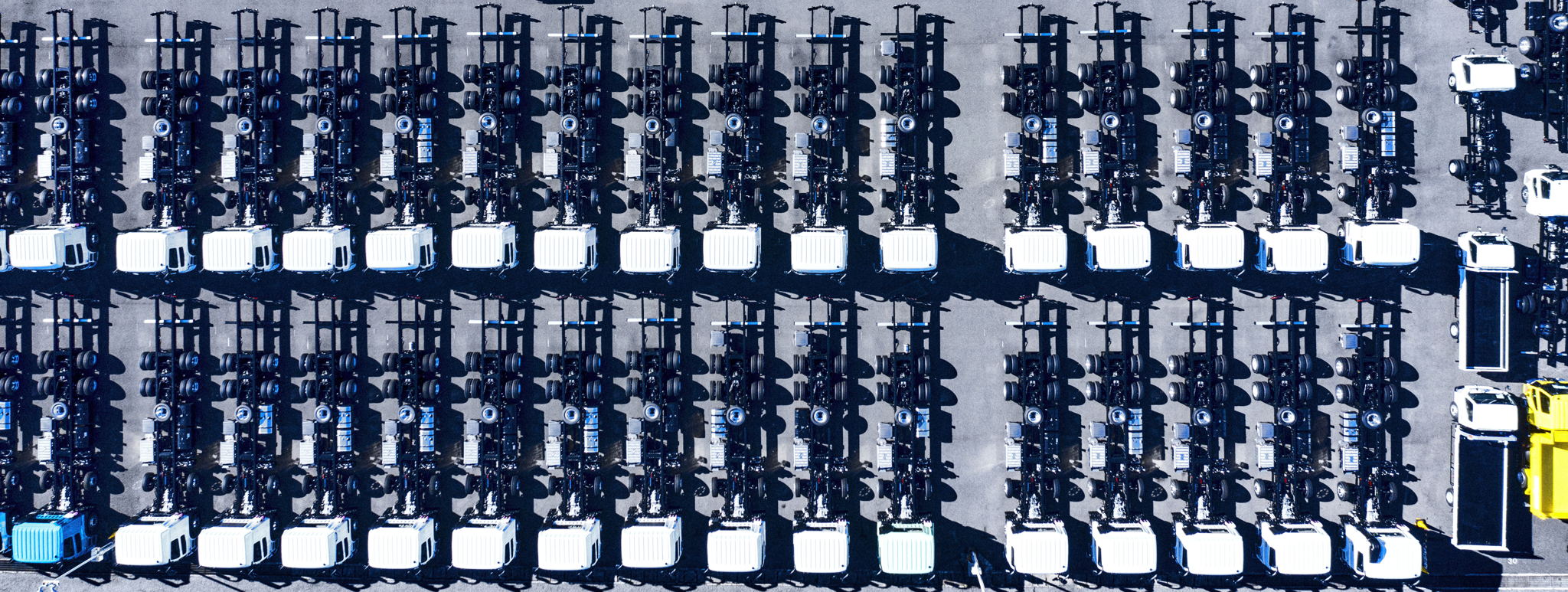Eight out of ten transport companies want to be emission-free
ING Belgium and partners present “Fuel for the Future” research report
Thursday 3 June 2021 - Brussels - Eight out of ten transport companies in Belgium want to be completely emission-free in the future. One in three say their vehicles are already running on alternative propulsion, such as CNG, LNG or hybrid. These are some of the striking findings of the “Fuel for the Future” transport study commissioned by ING Belgium together with VIL, Logistics in Wallonia and Thomas More-hogeschool. The researchers sought answers to various questions in the transport and logistics sector, such as what technology they should invest in to make the transition to low-carbon transport. At the same time, the report outlines the vision of the sector. It calls on policymakers to work on supporting measures to green the transport fleet.
Recently, the Federal Government decided that emission-free commercial vehicles should become the norm from 2026 onwards. Within the transport sector, too, there is an ongoing debate about emission-free vehicles: should transport companies invest in trucks and delivery vans that run on natural gas, biodiesel, hydrogen or electricity? The European Green Deal strongly increases the pressure on transport and logistics companies for emission-free solutions. The ambition of this plan is to reduce CO2 emissions by more than 50% by 2030.
“The study provides an overview to the transport sector of alternative fuel types and their cost price, the tax incentives for investing in them and the climate impact. This report gives a direction to our customers and we accompany them in making the right and future-oriented choices.”
Yves Goddefroy, Business Desk Manager Port of Antwerp, ING Belgium
Eight out of ten transport companies want to be low carbon
The survey1 that is part of the study reveals a number of interesting elements about how the sector views the transition to alternative transport options. Four out of five (80%) transport companies in Belgium want to make their operations low carbon. Almost one in three (30%) of those surveyed say they have alternative propulsion vehicles in their fleet. And more than half (53%) want to make the transition to sustainable alternatives for ecological reasons.
On the other hand, the survey also indicates that an environmentally conscious approach is only effective if it is accompanied by sufficient economic profitability. The limited number of loading and filling stations, for example, is still considered a major obstacle.
“The respondents are calling for joint action, with their customers and suppliers on the one hand, and with policymakers on the other, to make the transition to emission-free transport possible. In addition, the participants are experiencing a lack of a long-term vision at European, federal and regional level that supports the greening of the transport fleet. This makes an analysis of the cost and profitability of possible investments more difficult.”
Kris Neyens, Manager Internationalisation, VIL
What alternative propulsion in the future?
- In terms of greenhouse gas emissions, there is little or no profit to be made with LNG in the logistics world. In fact, if the government adds to the pressure, the supply of LNG vehicles could rapidly decline in favour of fully emission-free solutions.
- Once the excise duty on petrol and diesel increases prices and the production of biodiesels becomes cheaper, the use of biodiesels such as HVO (Hydrotreated Vegetable Oil) will be more economical. But for HVO to be sustainable, it must be produced from waste streams or renewable sources. The limited availability of these is the main limitation of HVO.
- Based on current developments and available knowledge, hydrogen is probably best suited for heavy and long transport. Now that hydrogen is also part of the Green Deal, investments in refuelling infrastructure will only be increased. The challenge here is that hydrogen is not yet an emission-free fuel, because the share of green electricity in the energy mix is still too small to produce it on a large scale.
- The speed with which electric transport will enter the logistics world will depend not only on its operational employability, but also on the legal framework.
“The European Green Deal will greatly increase the pressure to provide emission-free solutions. There are still many challenges, but the road to emission-free transport has begun and there is no turning back."
Mark Pecqueur, lecturer and research developer in automotive technology, Thomas More-hogeschool
The full study in Dutch and French can be found below.
About the partners
1 Survey conducted by Logistics in Wallonia and VIL; n = 167
Fuel for the future_FR.pdf
PDF - 5.2 Mb
Fuel for the future_NL.pdf
PDF - 5.2 Mb
Press release_Fuel for the Future_EN_DEF.pdf
PDF - 122 Kb
